Best Long-Term Investment Stocks to Buy
Some of the best long-term investment stocks include companies that are in good financial standing, pay consistent dividends and buy back their own stock.


Profit and prosper with the best of Kiplinger's advice on investing, taxes, retirement, personal finance and much more. Delivered daily. Enter your email in the box and click Sign Me Up.
You are now subscribed
Your newsletter sign-up was successful
Want to add more newsletters?

Delivered daily
Kiplinger Today
Profit and prosper with the best of Kiplinger's advice on investing, taxes, retirement, personal finance and much more delivered daily. Smart money moves start here.

Sent five days a week
Kiplinger A Step Ahead
Get practical help to make better financial decisions in your everyday life, from spending to savings on top deals.

Delivered daily
Kiplinger Closing Bell
Get today's biggest financial and investing headlines delivered to your inbox every day the U.S. stock market is open.

Sent twice a week
Kiplinger Adviser Intel
Financial pros across the country share best practices and fresh tactics to preserve and grow your wealth.

Delivered weekly
Kiplinger Tax Tips
Trim your federal and state tax bills with practical tax-planning and tax-cutting strategies.

Sent twice a week
Kiplinger Retirement Tips
Your twice-a-week guide to planning and enjoying a financially secure and richly rewarding retirement

Sent bimonthly.
Kiplinger Adviser Angle
Insights for advisers, wealth managers and other financial professionals.

Sent twice a week
Kiplinger Investing Weekly
Your twice-a-week roundup of promising stocks, funds, companies and industries you should consider, ones you should avoid, and why.

Sent weekly for six weeks
Kiplinger Invest for Retirement
Your step-by-step six-part series on how to invest for retirement, from devising a successful strategy to exactly which investments to choose.
Folks looking for the best long-term investment stocks to buy have a few ways to approach the task. One is to follow the advice of Benjamin Graham, the father of value investing, in his classic book, The Intelligent Investor.
In what is one of the best books on investing, Graham suggests that a defensive investor should buy stocks of large, conservatively financed companies with good earnings power.
The companies should also be some of the best dividend stocks, with low valuations and consistent histories of payouts.
However, in today's world, many tech stocks don't pay dividends. Instead, they often return capital to shareholders through large share repurchases. Why are stock buybacks important?
"First, all the share buyback activity provides a natural buyer in the market that keeps the price elevated," as I explain in my article, "What Is a Stock Buyback?". And second, "with fewer shares outstanding, the earnings divided by the average share count each go up."
How we chose the best long-term investment stocks
Applying Graham's criteria today, the idea is to find the best stocks to buy that return large amounts of capital to shareholders either through dividends and/or stock buybacks.
Doing so allows a company to increase its earnings and dividends per share. Moreover, a shareholder's stake rises over time. Both of these factors can push the stock price higher.
We also stick with stocks that have market caps of $100 billion or higher. They must also have low debt ratios and enough cash flow to reduce their debt, as well as pay dividends and/or buybacks.
With this in mind, here are nine of the best long-term investment stocks to buy now.
Data is as of November 19. Dividend yields are calculated by annualizing the most recent payout and dividing by the share price.
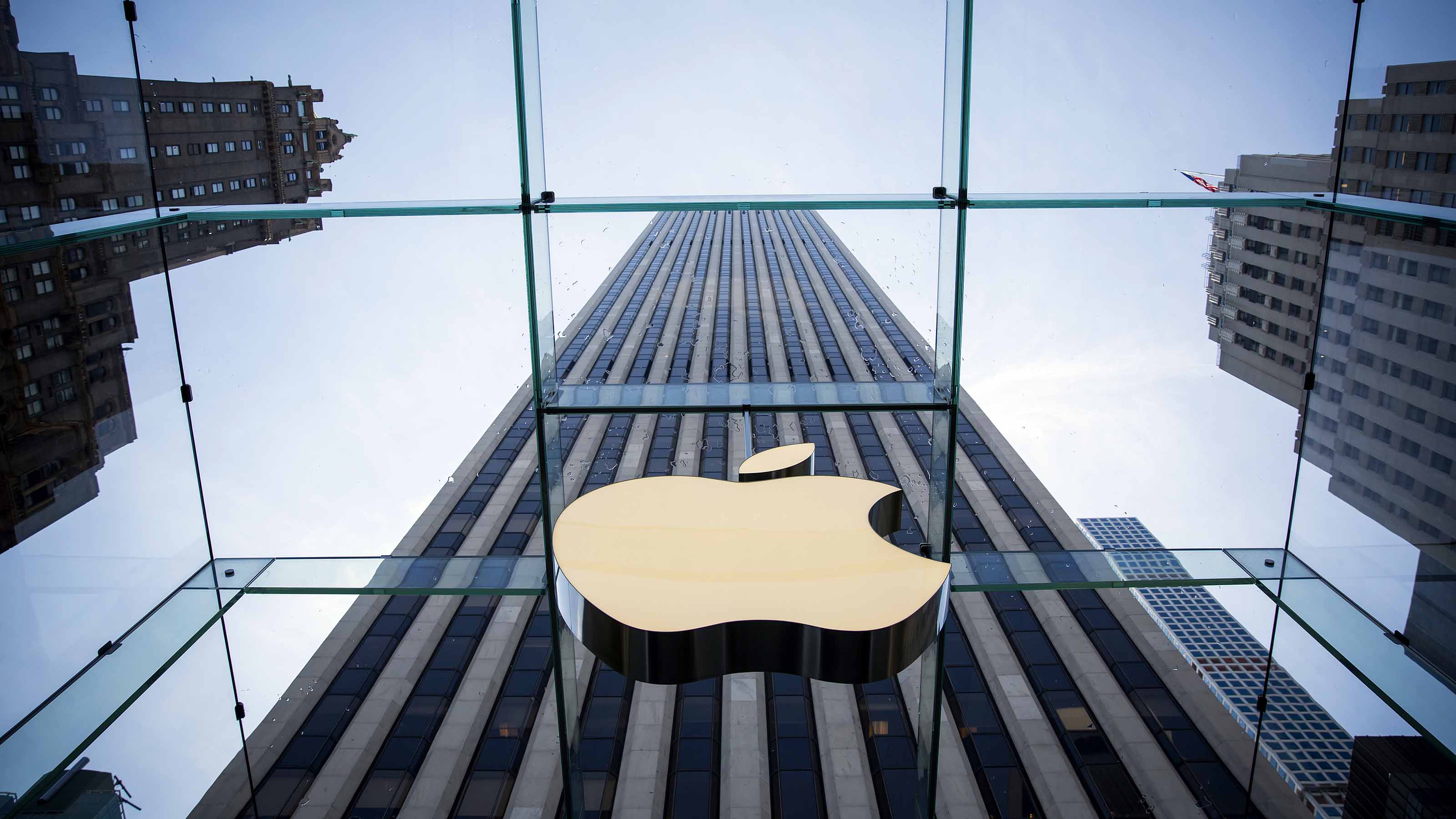
Apple
- Market value: $3.97 trillion
- Dividend yield: 0.4%
Apple (AAPL) is the $4 trillion maker of iPhone smartphones, Mac computers, iPads and numerous other products and services.
iPhones still represent more than half of the company's sales, but recently, services, which include the App Store, have started to increase as well.
For example, in its latest fiscal year ending September 27, Apple's services revenue came in at $109.2 billion, or 26% of its $416.2 billion in sales. That's up from 25% the year prior.
So, this massive tech products company is slowly shedding its overreliance on the iPhone, whose models are high-priced. While this will take time, the market so far approves of this plan.
And why not? The company is generating massive amounts of free cash flow (FCF), which is the money left over after expenses to run, maintain and expand the business are covered.
In its most recently completed fiscal year, Apple generated strong operating cash flow of $111.5 billion, while returning over $105 billion to shareholders.
Apple pays a small dividend that costs the company just $15 billion each year, or 14% of its annual operating flow. AAPL stock yields 0.4%
The rest of the $90 billion "returned" to shareholders was through stock buybacks. In May 2025, Apple said its board authorized a new $100 billion share repurchase program.
That approach benefits long-term shareholders of Apple stock. First, it will raise AAPL's earnings per share over time, because there will be a lower number of outstanding shares for the income produced.
In addition, the dividend per share can rise faster than it would otherwise since the dividend payments will be spread over fewer number of shares outstanding. And shares traded in the market will be absorbed, effectively acting as a buying source that will push the blue chip stock higher.
Keep in mind that AAPL stock is not overly cheap at the moment at 32.4 times forward earnings — above its five-year average of 27.6, according to Morningstar.
Nevertheless, Apple remains one of the best long-term investment stocks due to its consistent and powerful cash flow, dividends and buybacks.

Chevron
- Market value: $303.3 billion
- Dividend yield: 4.5%
Chevron (CVX) is an integrated energy and chemicals company with both upstream and downstream operations in the U.S. and around the world.
CVX meets the criteria for a good long-term investment as it is conservatively financed, produces good profits and pays an attractive dividend that it can afford. Moreover, CVX stock is not expensive, and the company is actively buying back shares, helping to push its price higher.
For example, analysts expect Chevron to make $8.13 per share in fiscal 2026, which has the energy stock trading at 18.7 times forward earnings. This is above the five-year average of 13.1 times.
Chevron has 38 years of annual dividend hikes under its belt because, despite volatility in the prices of oil and gas and chemical industry cycles, the company has consistently produced large amounts of free cash flow.
For example, in fiscal 2024, Chevron generated $30.3 billion in operating cash flow before working capital changes and $15 billion in free cash flow. The company spent $11.8 billion on dividends and $15.2 billion on share buybacks, for $27 billion in total shareholder returns.
These figures show how Chevron manages a fair balance between investing in the future and rewarding shareholders with its cash flow. And it underscores why CVX is the kind of stock that long-term investors should have in their portfolio.
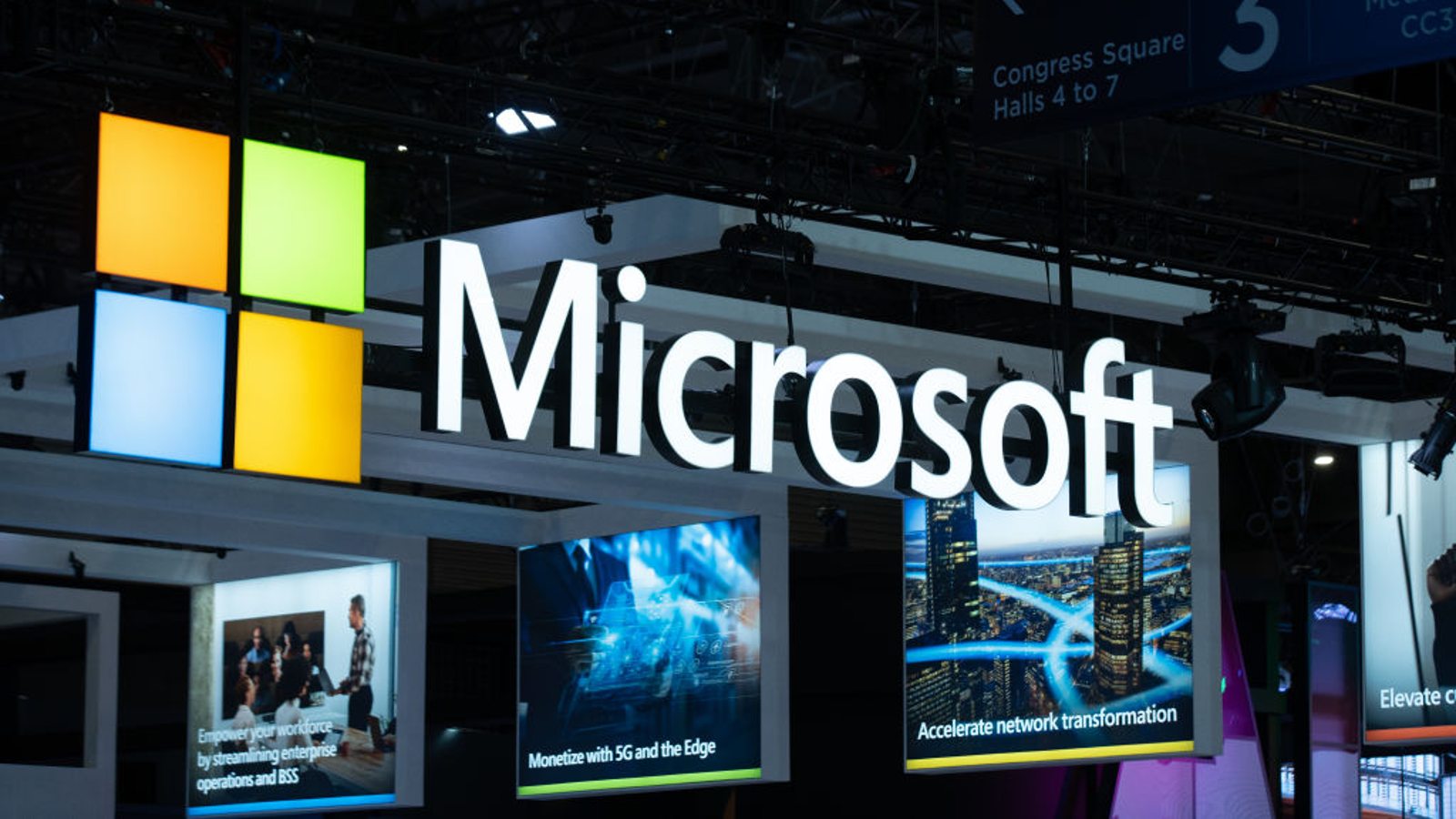
Microsoft
- Market value: $3.62 trillion
- Dividend yield: 0.8%
Microsoft (MSFT) operates in every key software arena: operating systems, cloud, gaming, application software, and, even more notably these days, artificial intelligence (AI).
MSFT meets all the necessary qualities for being one of the best long-term investment stocks as it has consistent earnings, is conservatively financed and generates large amounts of free cash flow. Moreover, it pays a dividend and spends most of its FCF on share buybacks.
Like Apple, however, MSFT stock is no cheap on a a historical basis. For example, Microsoft is trading at 31.1 times forward earnings, which is below its five-year average of 30.0.
Long-term investors are likely to do quite well with MSFT. The reasons are quite simple: The company's massive cash flow, its products' ubiquity and acceptance and its shareholder rewards all work in the stock's favor.
More importantly, the company has plenty of room to increase its shareholder-friendly initiatives over time. That's because it spends just about half its free cash flow on dividends and buybacks. It plows the rest back into the company, reducing debt and making investments and acquisitions.
So, in the long run, Microsoft shareholders can expect the company to typically grow profits and cash flow, while consistently hiking its dividends and buybacks.
In fact, Microsoft has had 21 consecutive years of raising its dividend. That alone, not counting its buybacks and earnings power, makes the Dow Jones stock worthy of being a long-term investment.
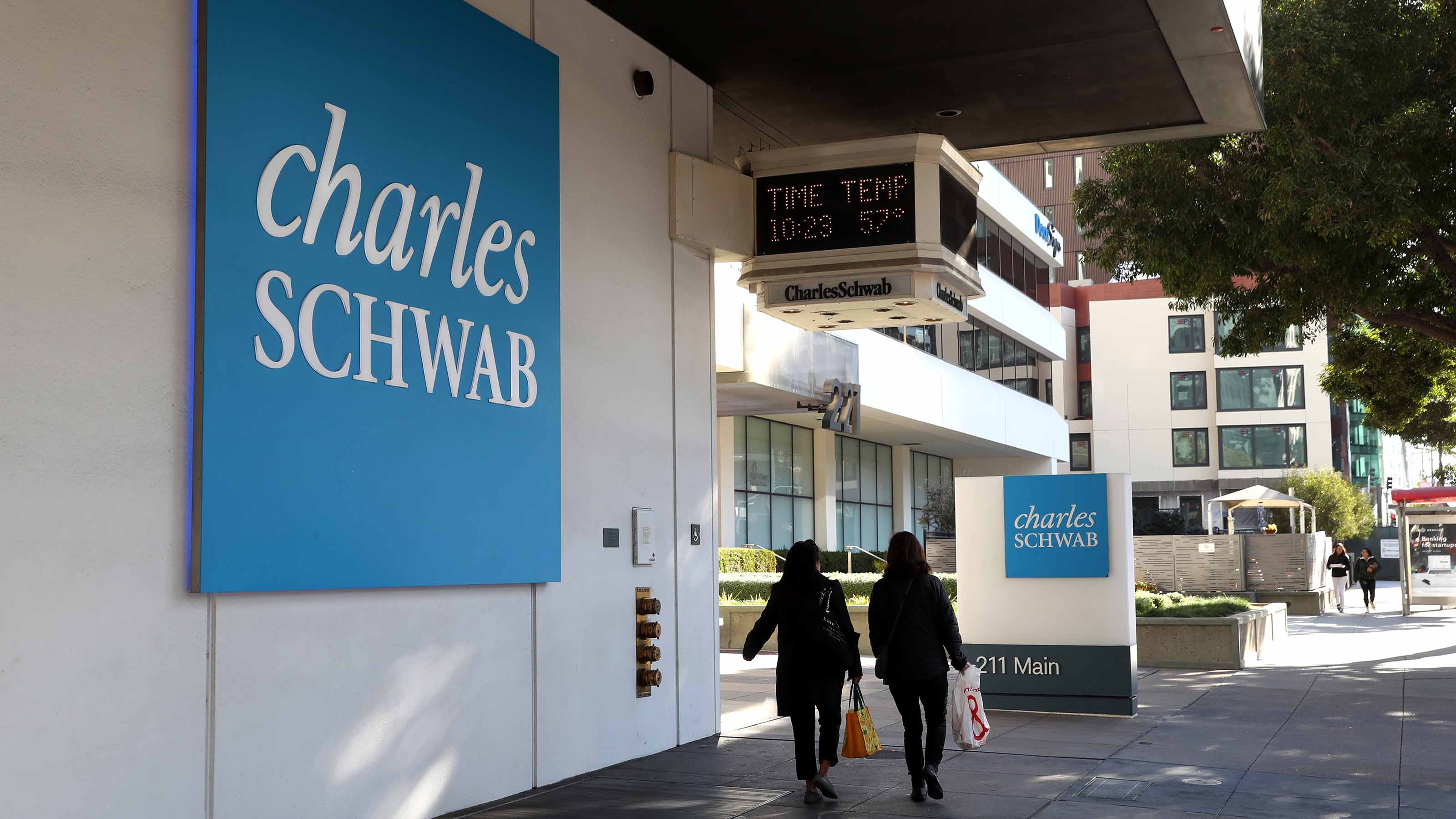
Charles Schwab
- Market value: $164.6 billion
- Dividend yield: 1.2%
Charles Schwab (SCHW) is a well-known discount brokerage firm and investment banking company with which many folks are familiar.
SCHW meets all the best criteria for a long-term investment value strategy. For example, it is conservatively financed and pays a consistent dividend.
As for that dividend, Schwab has had 35 years of consistently paying its dividend each year. That is well over the 10-year average of the median in its sector.
Moreover, Schwab's most recent return on equity was 21%, up seven percentage points year over year and indicating steadiness in its earnings power.
Jefferies analyst Dan Fannon has a Buy rating on the financial stock. "We remain optimistic about the growth trajectory over the next 12 to 18 months, as various structural drivers are expected to help bridge the growth gap between legacy TD clients and SCHW clients," Fannon wrote in an early May note.
He adds that "share repurchases are likely to be a more consistent contributor to EPS growth in the coming quarters."
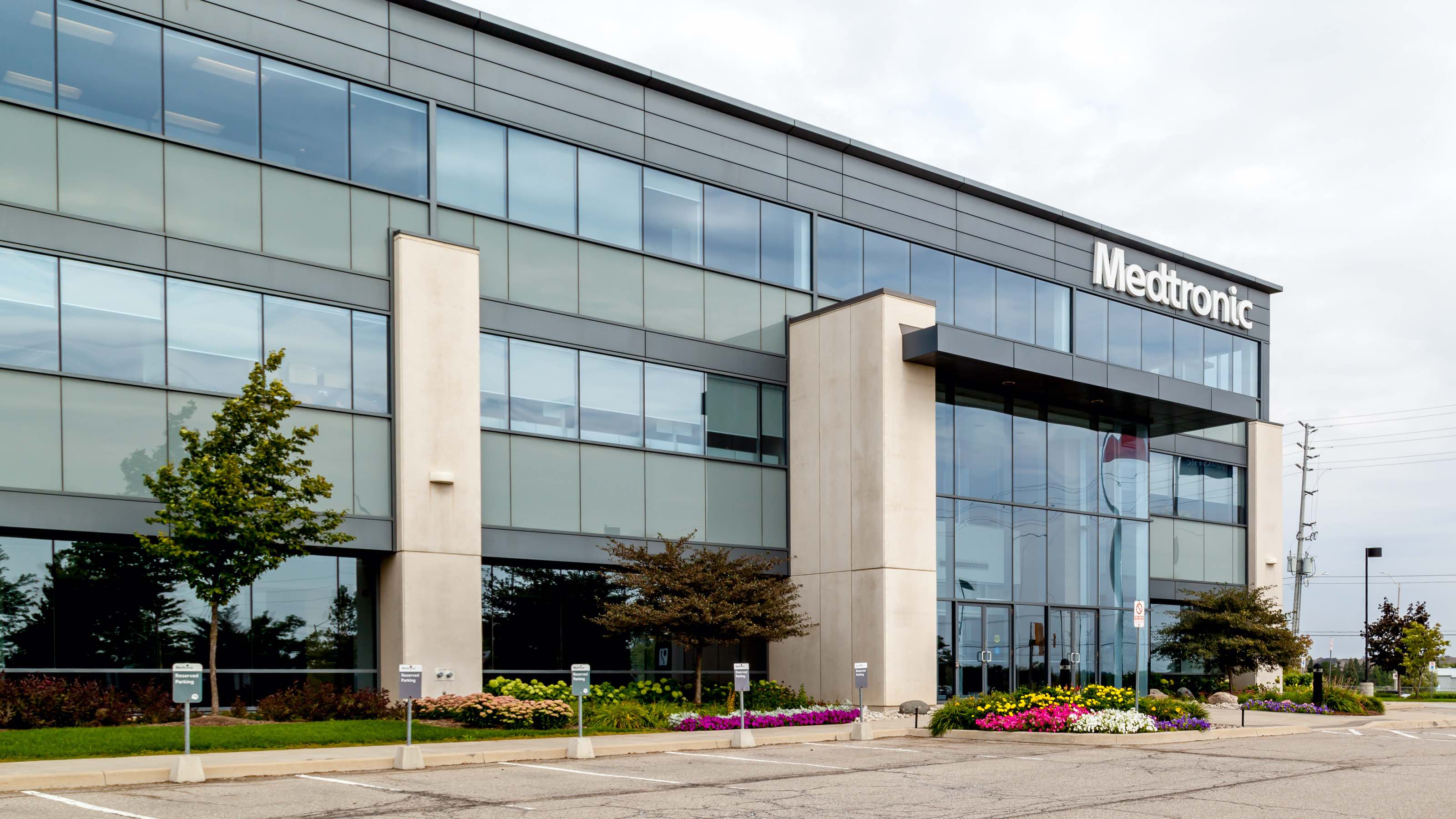
Medtronic
- Market value: $128.7 billion
- Dividend yield: 2.8%
Medtronic (MDT) is a $130 billion medical device and therapies company that originally invented the pacemaker. Moreover, the company is extremely profitable, which allows it to pay generous dividends and do large share buybacks.
Right now, MDT stock has a $2.84 annual dividend that will likely continue to rise. The company has reliably raised its dividend for 48 straight years, including a 1.4% hike in May 2024.
Moreover, during fiscal 2025 (ended in April), Medtronic bought back $2.7 billion of its own shares. That works out to be a small portion of its market value, but every little bit helps towards allowing the company to keep raising its dividend.
In addition, at just 17.8 times forward earnings, the stock is inexpensive.
Meanwhile, Medtronic has about $26.1 billion in net debt on its balance sheet, which is less than its $48.1 billion in shareholders' equity. The company's cash flow should continue to recover from supply chain issues we've seen in recent years, allowing Medtronic to reduce its debt reliance over time.
And given its powerful cash flow and shareholder returns, MDT is one of the best long-term investment stocks.
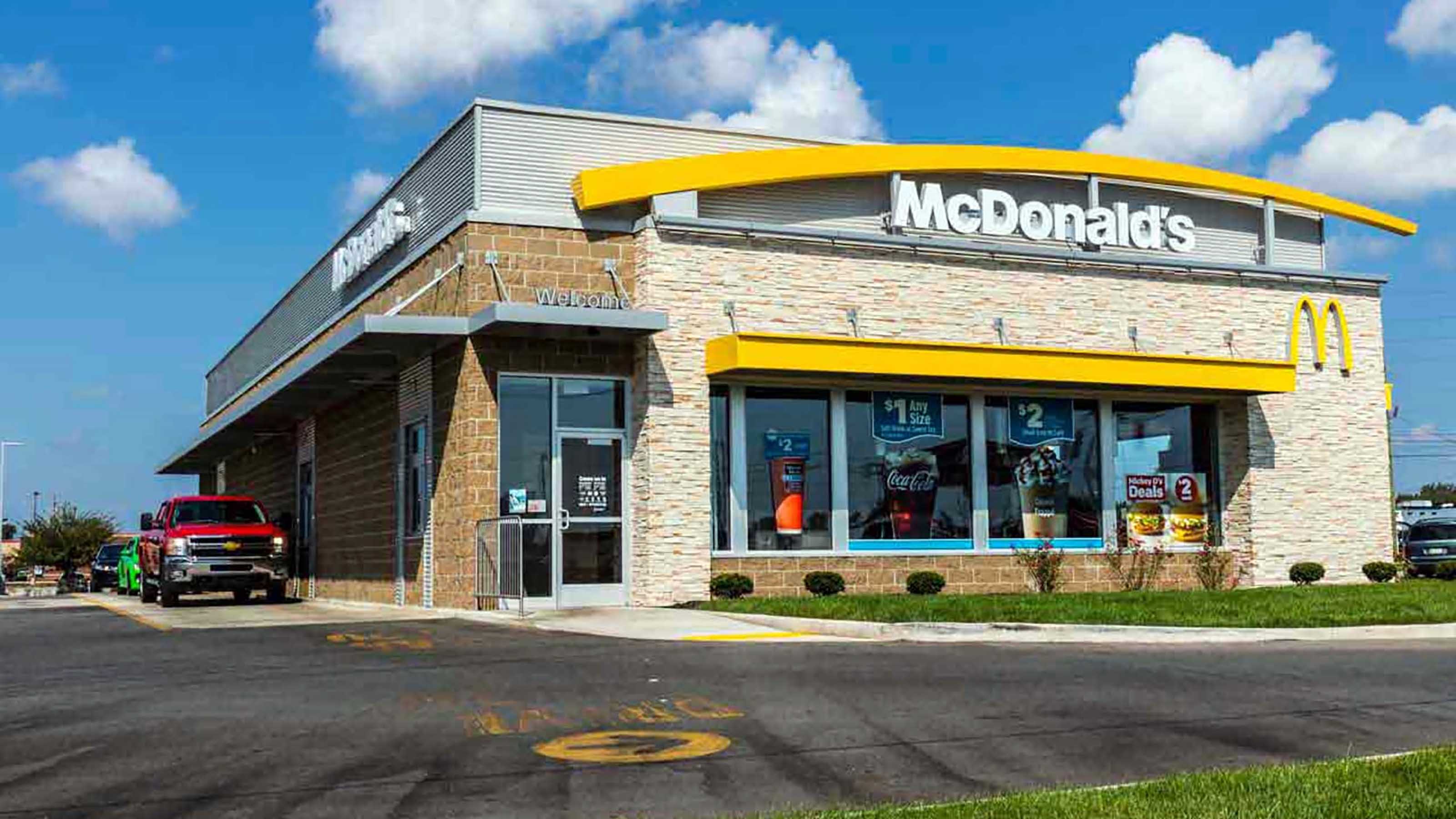
McDonald's
- Market value: $215.6 billion
- Dividend yield: 2.5%
McDonald's (MCD) is a company that just about every investor knows well. But few realize that it's actually one of the best long-term investment stocks to buy because it generates large amounts of free cash flow.
For example, in the trailing 12 months through September, MCD produced $7.3 billion in FCF. That represents 3.4% of its $215.6 billion market capitalization.
MCD uses its free cash flow to pay a very ample dividend and buy back its stock. In all of 2024, the company paid out $7.7 billion across these shareholder-friendly initiatives.
While some folks might not like MCD's quick-service restaurant food, plenty of others do. They love its menu, buy McDonald's fries and hamburgers and generally can't get enough of its food.
Moreover, it is conservatively financed, as its $39 billion in long-term debt is well-managed by the company's ongoing FCF generation. In addition, shareholders have benefited from its history of annually raising its dividend over the past 49 years.
MCD stock looks cheap right now on a historical basis. It currently trades at 22.9 times forward earnings, below its five-year average of 24.5.
Nevertheless, everyone is "lovin" MCD stock for the long term.
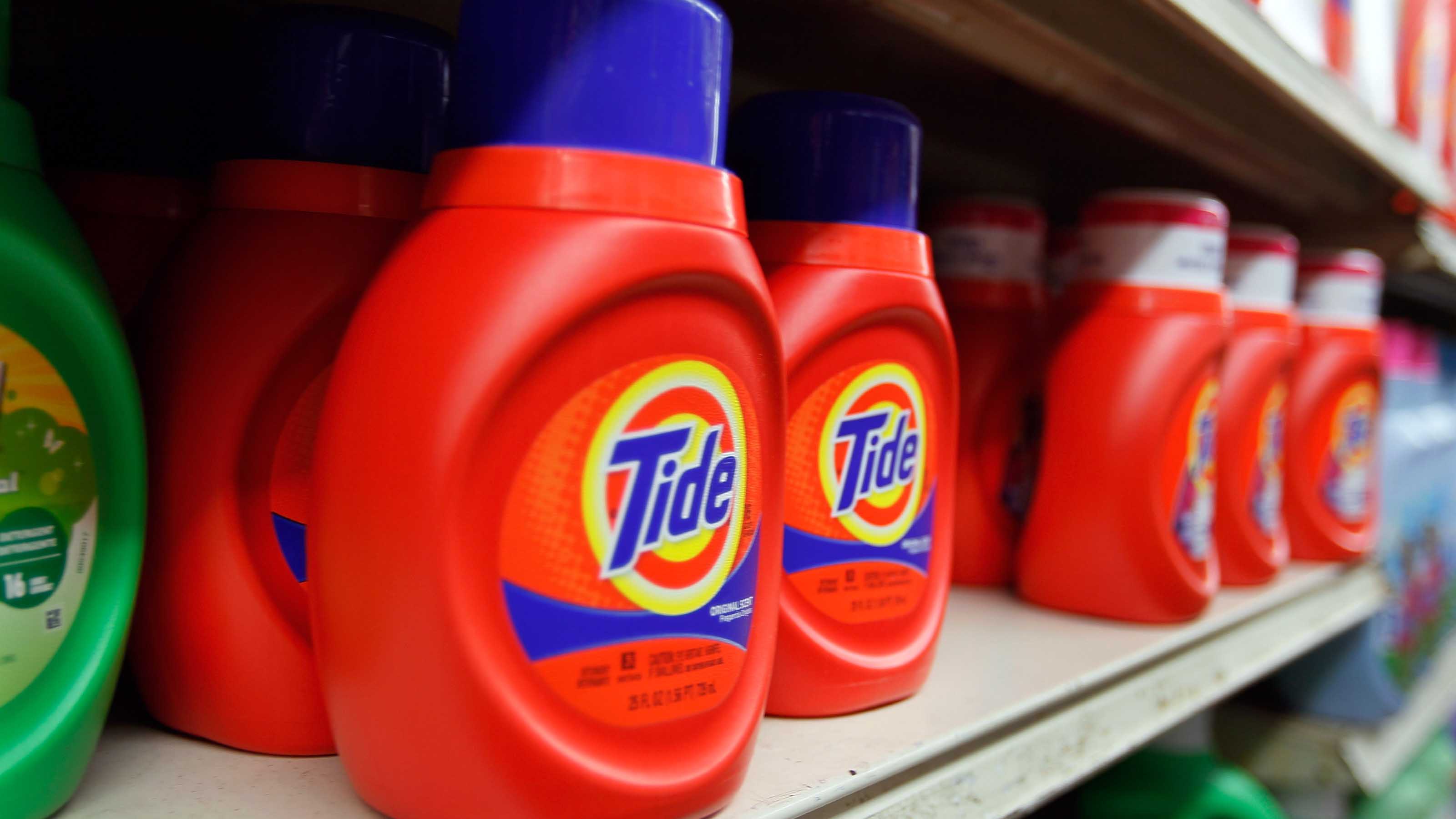
Procter & Gamble
- Market value: $343.5 billion
- Dividend yield: 2.9%
Procter & Gamble (PG) is an approximately $345 billion consumer products giant with many iconic brand names – including Downy detergent, Mr. Clean cleaning supplies and Head & Shoulders shampoo – that produce large amounts of cash flow for the company.
Most everyone knows Procter & Gamble's brands and is familiar with their solid reputations. But few realize how incredibly profitable the company actually is and why PG is one of the best long-term investment stocks to buy.
For example, for its fiscal 2026 first quarter (ended September 30), PG generated $5.4 billion in operating cash and, after $1.2 billion in capex spending, $3.2 billion in free cash flow.
The FCF represents a notable 14.3% of P&G's $22.4 billion in quarterly sales, which is a very high free cash flow margin for a consumer products company. In fact, some software companies don't even make those kinds of margins.
Moreover, this FCF also funds massive dividends and buybacks for shareholders. The company has raised its dividend annually for the past 69 years. And management said it expects to buy back $5 billion in stock this fiscal year. That represents about 1.5% of its current market capitalization.
Meanwhile, PG is cheap at the moment relative to its historical valuation. It trades for 21.0 times earnings, which is below its five-year average of 23.7.
Procter & Gamble generates large amounts of cash flow from its brands and is working diligently to return value to shareholders. That makes it one of the best long-term investments value buyers can make.
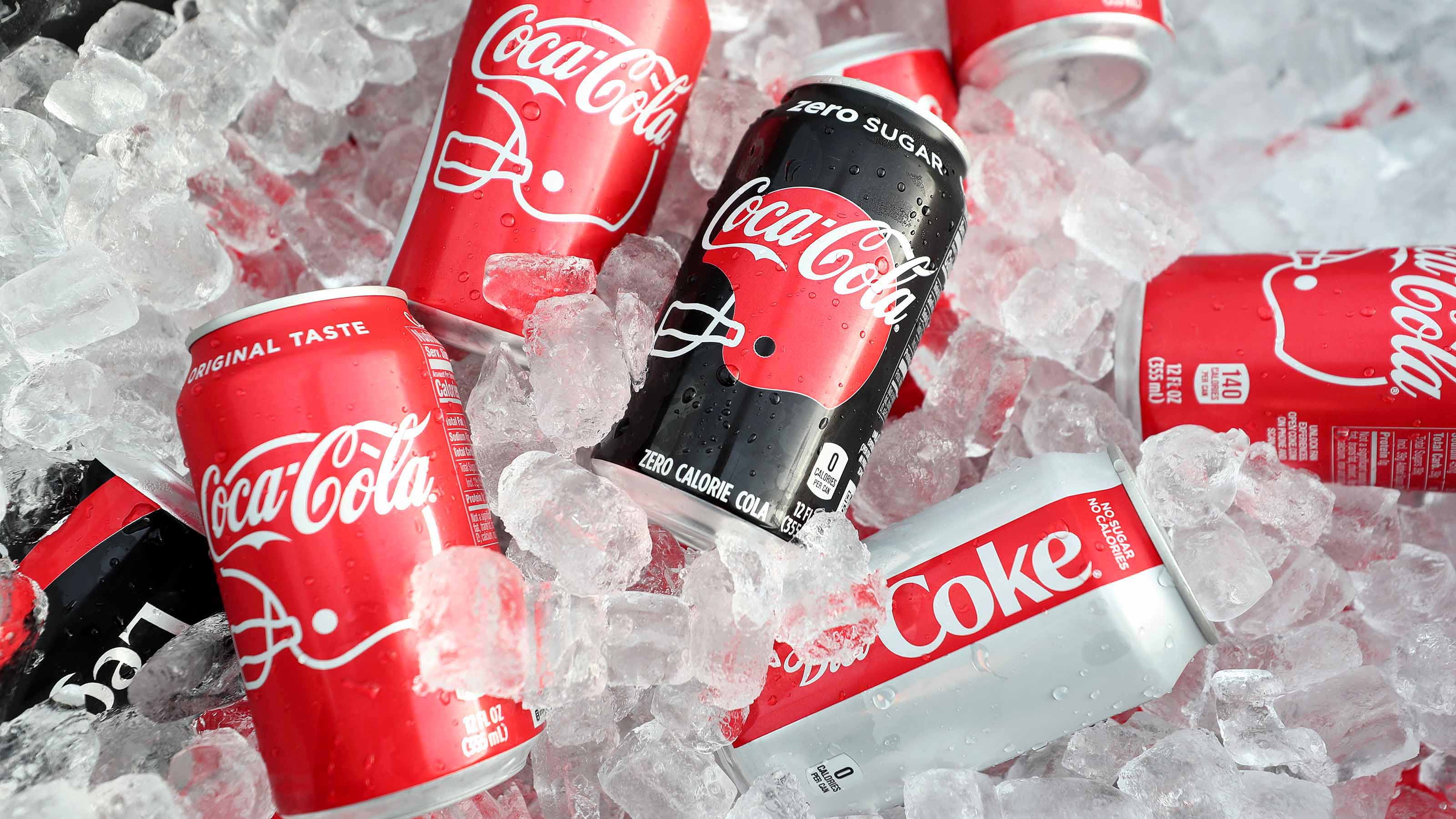
Coca-Cola
- Market value: $305.9 billion
- Dividend yield: 2.9%
Coca-Cola (KO) is an iconic beverage company that generates large amounts of cash flow for its shareholders with its well-known brands such as Coke, Diet Coke, Fanta, Powerade and Minute Maid.
That makes it one of the best long-term investments a value buyer can make – just ask Warren Buffett, whose Berkshire Hathaway (BRK.B) holding company is KO's top shareholder.
What makes KO so attractive is that it’s one of the best dividend stocks on Wall Street, having increased its payouts consistently for the last 63 years straight. Most recently, Coca-Cola hiked its dividend by more than 5% in February 2025.
Today, KO stock yields an attractive 2.9%, and investors can expect the dividend payout to keep increasing.
On top of that, Coca-Cola has a strong stock buyback program. For example, in 2024, it spent $1.1 billion on share repurchases. That represents 0.4% of its current market value.
KO's dividends and share buybacks are more than covered by the $4.7 billion in free cash flow the company generated in 2024.
So, for the long-term investor, this consumer staples stock looks like a good investment, given its strong cash flows and shareholder-friendly initiatives.
Related content
Profit and prosper with the best of Kiplinger's advice on investing, taxes, retirement, personal finance and much more. Delivered daily. Enter your email in the box and click Sign Me Up.

Mark R. Hake, CFA, is a Chartered Financial Analyst and entrepreneur. He has been writing on stocks for over six years and has also owned his own investment management and research firms focused on U.S. and international value stocks, for over 10 years. In addition, he worked on the buy side for investment firms, hedge funds, and investment divisions of insurance companies for the past 36 years. Lately, he is also working as Chief Strategy Officer for a tech start-up company, Foldstar Inc, based in Princeton, New Jersey.
-
 How Much It Costs to Host a Super Bowl Party in 2026
How Much It Costs to Host a Super Bowl Party in 2026Hosting a Super Bowl party in 2026 could cost you. Here's a breakdown of food, drink and entertainment costs — plus ways to save.
-
 3 Reasons to Use a 5-Year CD As You Approach Retirement
3 Reasons to Use a 5-Year CD As You Approach RetirementA five-year CD can help you reach other milestones as you approach retirement.
-
 Your Adult Kids Are Doing Fine. Is It Time To Spend Some of Their Inheritance?
Your Adult Kids Are Doing Fine. Is It Time To Spend Some of Their Inheritance?If your kids are successful, do they need an inheritance? Ask yourself these four questions before passing down another dollar.
-
 The 4 Estate Planning Documents Every High-Net-Worth Family Needs (Not Just a Will)
The 4 Estate Planning Documents Every High-Net-Worth Family Needs (Not Just a Will)The key to successful estate planning for HNW families isn't just drafting these four documents, but ensuring they're current and immediately accessible.
-
 Love and Legacy: What Couples Rarely Talk About (But Should)
Love and Legacy: What Couples Rarely Talk About (But Should)Couples who talk openly about finances, including estate planning, are more likely to head into retirement joyfully. How can you get the conversation going?
-
 How to Get the Fair Value for Your Shares When You Are in the Minority Vote on a Sale of Substantially All Corporate Assets
How to Get the Fair Value for Your Shares When You Are in the Minority Vote on a Sale of Substantially All Corporate AssetsWhen a sale of substantially all corporate assets is approved by majority vote, shareholders on the losing side of the vote should understand their rights.
-
 Dow Leads in Mixed Session on Amgen Earnings: Stock Market Today
Dow Leads in Mixed Session on Amgen Earnings: Stock Market TodayThe rest of Wall Street struggled as Advanced Micro Devices earnings caused a chip-stock sell-off.
-
 How to Add a Pet Trust to Your Estate Plan: Don't Leave Your Best Friend to Chance
How to Add a Pet Trust to Your Estate Plan: Don't Leave Your Best Friend to ChanceAdding a pet trust to your estate plan can ensure your pets are properly looked after when you're no longer able to care for them. This is how to go about it.
-
 Want to Avoid Leaving Chaos in Your Wake? Don't Leave Behind an Outdated Estate Plan
Want to Avoid Leaving Chaos in Your Wake? Don't Leave Behind an Outdated Estate PlanAn outdated or incomplete estate plan could cause confusion for those handling your affairs at a difficult time. This guide highlights what to update and when.
-
 I'm a Financial Adviser: This Is Why I Became an Advocate for Fee-Only Financial Advice
I'm a Financial Adviser: This Is Why I Became an Advocate for Fee-Only Financial AdviceCan financial advisers who earn commissions on product sales give clients the best advice? For one professional, changing track was the clear choice.
-
 Nasdaq Slides 1.4% on Big Tech Questions: Stock Market Today
Nasdaq Slides 1.4% on Big Tech Questions: Stock Market TodayPalantir Technologies proves at least one publicly traded company can spend a lot of money on AI and make a lot of money on AI.
